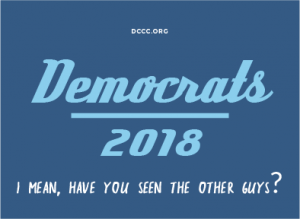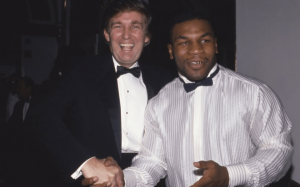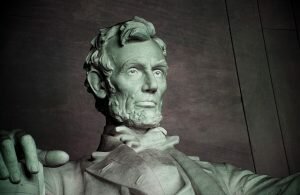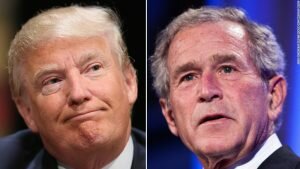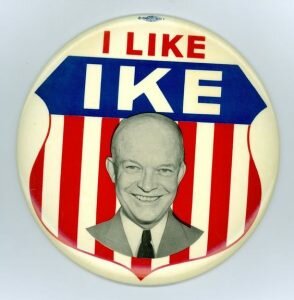Political Bumper Stickers are Dumb and Ugly, but not Pointless
Still reeling from its loss six months into the Trump presidency, the Democratic Party has finally decided to try something new. Or, at least, to put a spin on an age-old political advertising tactic. Last week, the Last week, the party asked its supporters to vote on their favourite of four brand-new bumper sticker designs.
That was a miscalculation, to say the least. The sticker designs were widely ridiculed for lacking substance, invoking cringeworthy catchphrases and self-deprecating humour. It seems unlikely any of the four designs will see the light of day, though countless parodies are sure to adorn many a bumper in the coming midterm elections.
You would think something as simple as bumper sticker is hard to mess up. It’s a tiny, rectangular box, designed to be squinted and scoffed at from behind the wheel of another car. But as I see it, bumper sticker advertising is no different from most other ads out there.
I think the makings of a good bumper sticker are the same as those of a good headline or a good Tweet. The message must be short. It must be memorable, and easy to read. And, of course, it has stand out.
Some people argue that bumper stickers are a waste of space. This is a common excuse I’ve seen for the Democratic Party’s sticker shenanigans. No one reads bumper stickers anymore, so what’s the point?
It’d doubtful a sticker ever going to persuade someone to vote one way or the other. But it could certainly motivate them to Google a name, or an idea, especially if it’s something bizarre.
The bumper sticker also has advantages over other forms of advertising. We’re becoming ever more skillful at ignoring ads, developing PVR and Adblock to circumvent the messages our content providers impose on us. Bumper stickers are one of the few forms of advertising that still have a captive audience.
Sure, you could just ignore them. But why would you? Being stuck in traffic or waiting for a light to change is boring. You can’t really admire your surroundings because you have to pay attention to what’s in front of you. As a smart, responsible citizen, there’s no way you’re about to pull out your phone while you’re operating a motor vehicle.
So what do you do? You stare straight ahead, and your eye is drawn to whatever’s in your line of sight. If there’s a bold message on a little white box, you’re going to read it. You can’t resist.
If you’re already planning on dropping flyers, going door-to-door, and putting up a yard sign, you might as well add a bumper sticker to your political advertising suite. If nothing else, it’ll show hopeless and apathetic voters that there are, in fact, other supporters in town, and it might be worth voting after all.
Might as well take another swing at the whole bumper sticker thing, Democrats. At least there’s plenty of time to come up with a good slogan for the 2018 midterm elections.
The Ghost Haunting American Politics
The 2016 Democratic congressional candidate in Georgia’s 6th District was one Rodney Stooksbury. In last year’s election, Mr. Stooksbury ran against, and lost to, Republican incumbent Tom Price.
This was not surprising, given that the Republiacn Party has a strong hold in the district. But it didn’t help that Stooksbury never once made a public appearance in relation to his campaign.
The Stooksbury campaign had no office. No one knocked on doors or dropped pamphlets on his behalf. Even if they wanted to, there were no pamphlets or other campaign materials to distribute. Rodney Stooksbury didn’t even have the bare minimum of a campaign website.
It’s almost as if he didn’t exist. In fact, that’s what some people believe.
Rodney Stooksbury is what Current Affairs reporter Nathan J. Robinson dubs a ghost candidate. Not the kind of ghost that goes “boo”, or moves furniture around while you’re sleeping. A ghost candidate is one whose campaign is so woefully under-supported by the party that he or she may as well not exist (and with Stooksbury, that may actually be the case.)
That wasn’t the first time the Democratic Party dropped the ball on Georgia’s 6th District. In the last two elections prior to 2016, the Democratic Party didn’t bother to field a candidate in at all, and Tom Price ran unopposed. The thought was that the district was so solidly Republican that any attempt to gain ground would be a waste of human and financial resources.
Better to run the race you can win than spread yourself thin across all the ones you can’t, right?
Not so, according to Robinson. He offers a compelling argument against ghost candidates:
There are a number of very good reasons why it is a mistake to just sit out elections you think you will lose. Elections represent a major opportunity to build your party, spread your message, and garner local name recognition for your candidates. That’s true even if you don’t win. You get to tell people what you stand for, and you can organize them around issues that go well beyond elections. After the race is over, if you’re good at it, you will have built a stronger network of people who can work on issues locally and who will be even better prepared to fight the next race.
He’s right. Despite Rodney Stooksbury’s non-campaign, the Democrats still received 38% of the vote in that election. That’s no small feat in a deeply red state! It was impressive enough that when the state held a special election to replace Tom Price in June, the Democrats decided to make a real go at the 6th District.
They fought hard. They spent millions. The fight between Democrat Jon Ossoff and Price’s replacement, Republican Karen Handel, was the most expensive congressional race in the history of the United States.
The Democrats still lost, but at a miniscule margin of 48 to 52.
It begs the question: what if, instead of ghost candidate Rodney Stooksbury, the party had fielded a real candidate and ran a real campaign back in 2016? What if they used the volunteer infrastructure and the momentum from that race to propel themselves ahead in this one?
What if they won?
The candidacy of Rodney Stooksbury wasn’t just a wasted opportunity. It was an embarrassment, and it’s all the more shameful in light of the party’s struggle to respond to the fractured political landscape that hit last November.
Schadenfreude in American Politics
“Normally, we are ambivalent about taking pleasure in the suffering of others. Even if we gain from the suffering, we pull the long face. But misfortunes that seem so obviously deserved liberate our pleasure. Who can suppress the delectable blend of schadenfreude and righteous gloating?”
Richard Smith, Ph.D., writing for Psychology Today
Schadenfreude is a German word which describes the pleasure derived from the deserving pain or misfortune of others. There is no equivalent word in English, but it’s not hard to find examples of it.
Just think of the long-running TV show, America’s Funniest Home videos, or its web-based equivalent, FailArmy. Civilized though we are, most of us can’t help but take some small pleasure in comedic mishaps which inflict a bit (or a lot) of pain on an unwitting victim.
If you have any doubt that the feeling is universal, just look at the number of views on any given FailArmy video. Schadenfreude is a powerful thing. Could it even be strong enough to influence voting habits?
Years ago, social psychologist David Combs studied schadenfreude in the reactions of Democrats and Republics to certain events. He showed his subjects a range of events from elections in the early aughts. Some of these events were “inherently funny”, like George W. Bush falling off a bicycle or John Kerry looking silly in an over-sized space suit — the kind of stuff you’d see on America’s Funniest.
Not surprisingly, Democrats found the Bush mishap funnier than Republicans did and vice versa. The stronger the test subjects identified with one party or the other, the greater the degree of pleasure they got from the opposing figure’s misfortune. In other words, political affiliation increased their schadenfreude.
A writer for the Oxford University politics blog, Oxpol, theorizes that Donald Trump owes some of his success to the effects of schadenfreude. It’s a compelling argument. The overarching theme of the 2016 presidential election was the loss of trust in condescending, out-of-touch American political and media elites. Trump, with his lack of experience and aloofness towards party protocols, seemed to embody this feeling.
Millions of Americans are still hurting from the economic recession in 2010, fuelling anxieties about immigration and globalization. Trump promised to return fire on those who voters blamed for their own suffering. Mexico would pay for the wall. China would get hit with tariffs in return for supposed trade-cheating. American companies who outsourced jobs would face consequences.
His interactions with the media had the same flare. Trump’s ability to send the reporters into a flurry of fact-checking and disdain showed voters he could get back at the shadowy media elitists.
Trump also mocked and belittled his fellow candidates during the Republican primary, to the pleasure of Republicans and Democrats alike. He took the political elite down a peg. Maureen Dowd, a democrat and writer for the New York Times, wrote at the time that, “The most enjoyable thing about the Trump phenomenon has been watching him make monkeys out of a lot of people who had it coming.”
Another writer, Isaac Chotner of Slate, saw the schadenfreude as well. But he was wary to indulge in this pleasure of suffering. He warned, “Those liberals who find themselves rooting for Trump, in the hope that his continued success will only further damage the GOP, are playing with fire—and putting their self-satisfaction ahead of the interests of the country.”
Good call, Isaac.
Is it Wrong to Laugh at American Politics?
Fox News Anchor Shepherd Smith once said American politics is weird and creepy. He’s right. And it’s not just weird — it’s dark, ironic, exhilarating.
Isn’t that why it attracts the chatter and attention of the whole world over? Yes, it’s true that the United States is the Earth’s foremost economic and military powerhouse. This is reason enough for the rest of the world to keep an eye on it, as a mouse watches a cat from its hiding place.
But this isn’t the sole reason we watch. We don’t only visit the realm of the White House for a daily dose of political developments. We want to be moved. Perhaps more than ever, American politics is a fertile source of dark humour. I, for one, can’t get enough of it.
Does that make me a bad person?
American politics is funny, but it’s also very serious business. The real-world ramifications of every House vote, every press release, every hot-headed Tweet and quip are nothing to scoff at. While we sit behind our phones laughing and shaking our heads at the latest in political absurdity, that same absurdity may inflict grievous harm and suffering.
When the American government goofs, families lose their homes. Workers lose their health care. People lose their livelihoods. Some even lose their lives.
Even if we aren’t laughing at those who are suffering, the fact that we are in any position to laugh at all reveals the extent of our privilege.
I’ve been wondering about this since the vote last November. Like many of my ilk, my initial thought on President Donald Trump’s election was, “This is terrible, but it’ll be great for comedy.” It has been so. But since then, I’ve also watched friends and strangers go through such strife and heartache at the hands of the Comedy President.
I think this is what they call cognitive dissonance.
Recently, I found another perspective on this an article written by Steven Johnson for The Guardian. Johnson posed the same question I’ve asked myself: Is it wrong to laugh at Donald Trump? His answer is as follows:
I find the persistence of laughter to be heartening, as incongruous as it might seem. Incongruity is one of the fundamental forces in the universe of comedy: take two things that don’t usually belong together; throw them into the same sentence; hilarity ensues. Dark comedy in particular thrives in juxtaposing the solemn, the mortal, with the petty and the prurient. So it makes sense that we should find ourselves reaching for punchlines when we want to throw punches. When things are bleak, we lean on humor to fight back, to build bonds, to whittle away at the pedestals of the powerful.
Maybe dark times call for dark humour. And I have no intention to stop laughing — even if I wanted to, I don’t think I could. But I expect the dissonance will remain.
Trump vs Bush: The First 100 Days in Office
This week marks President Donald Trump’s 100th day in office. Though this is an arbitrary number, pundits and other observers are treating it as a milestone.
Much has been made of what President Trump has, or has not, accomplished during this period of time. The Boston Globe says his first 100 days have been “unlike any other.” Much has been made of his two failed anti-immigration measures, his diplomatic spills with Russia and North Korea, and his numerous week trips to Mar-a-Lago.
So are they right? Are Trump’s first 100 days in office really unlike those of any other president?
Various news outlets have compared President Trump to his most predecessor, Barack Obama. They do so with the benefit of hindsight. What I’d like to do instead is look at how the same media assessed a predecessor back then.
Let’s compare him to the previous Republican President, George W. Bush.
100 Days of George W. Bush
I’ll get this out of the way now: George Bush Junior’s hundredth day came on April 29, 2001. That’s five months before the defining event of his time in office. Obviously, the public’s perception of him would shift dramatically at that point.
Back in April of ’01, Bush was a different character. To start, ABC News noted that lawmakers on both sides of the aisle commended him as a man with a clear vision and a plan to get things done. He was noted as a great listener and a keen learner. Bush enjoyed a 62% approval rating.
This was surprising, given that George W. Bush’s election victory was mired with controversy, including accusations of tampering and interference with the vote counts. As president, one of his first tasks was to escaping the shadow of the Florida recount and make his mark on the office. He largely succeeded. Sound familiar?
Perhaps most surprisingly, and somewhat ironic, is the call for Bush to become more hands-on in his role as President. We don’t normally think of George W. Bush as one who avoided the spotlight during his presidency, but he did just that in his first hundred days.
Does he have anything in common with Trump’s first 100? Yes. Bush had a minor diplomatic flap with China over the Hainan Island Incident, where an American fight jet collided with a Chinese jet and made an emergency landing on the island (the Chinese pilot did not survive.) Bush also ordered attacks on Iraq to enforce a no-fly zone, which commentators have likened to President Trump’s airstrike on Syria.
Like Trump, Bush also had a hard time putting his election promises into action. His omnibus tax cut legislation was still struggling through Congress, and he hadn’t turned his attention to other big issues like Medicare and social security.
I Like Ike: The First Political TV Ad
You like Ike. I like Ike. Who doesn’t love this campaign?
It ranks as among the most memorable political marketing of the 20th century. Not only is it one of the great entries in campaign advertising, it’s great advertising, period. I Like Ike is catchy. It’s succinct. It’s memorable.
Before ‘viral’ was a form of marketing in and of itself, I Like Ike had voters tapping their toes and humming along all the way to the ballot box.
Dwight Eisenhower, playfully nicknamed “Ike”, lead the Allied forces to victory at the end of the second world war. He was subsequently promoted to Chief of Staff of the United States Army and named Supreme Commander of NATO. Not surprisingly, this made him enormously popular. He was a war hero with a friendly face.
Unlike our current crop of politicians, many of whom are born and bred to run for Congress or Senate, Ike Eisenhower bore no intentions of becoming president. He rejected all requests for him to enter the political realm for years.
Ike didn’t like politics. He was a soldier, and a leader, but not a politician. In fact, before his own election, he had never even voted.
But that didn’t matter in 1952. Slow progress in the Korean War had made President Harry Truman unpopular, with a 66% disapproval rating. Democrats were desperate to fix their brand, and Republicans eager to overtake them. Recognizing that Americans had an affinity for the General, sectors of both parties set out to ‘draft’ Ike to their side.
Peter G. Peterson, the Republican who would later be Secretary of Commerce under Richard Nixon, snatched “I Like Ike” from the mouths of voters and built it into an marketing push. It caught on. Over a hundred thousand voters wrote-in Ike’s name for the Republican New Hampshire primary, despite him not having announced for either party.
The unprecedented show of support pushed him to formally enter the race.
With the support of the Republican Party, “I Like Ike” reached new heights in the general election. Famed songwriter Irving Berlin turned it into a song. Walt Disney Studios produced a cartoon to go along with it, which became the first political campaign ads aired on television.
The rest is history. Ike Eisenhower won with 55% of the popular vote. He topped himself in 1956, winning re-election with 58%.
